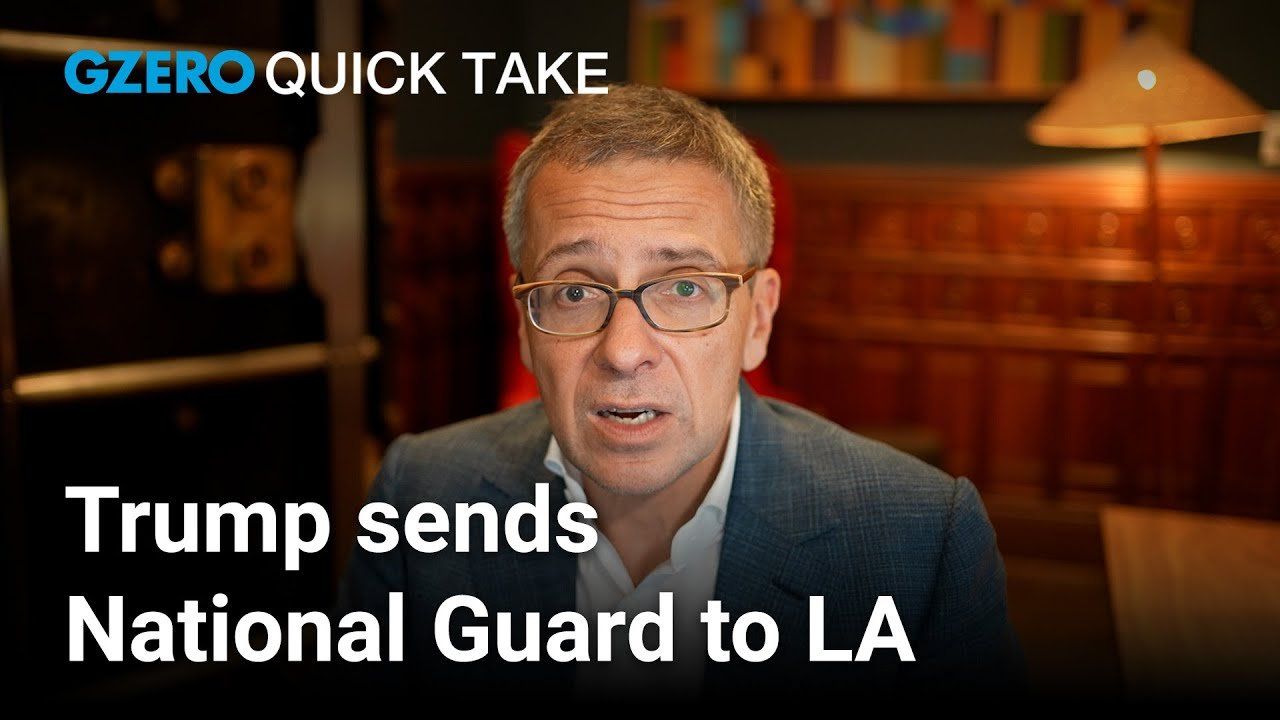June 09, 2025
In a controversial move, Donald Trump has authorized 2,000 National Guard troops to assist with federal deportation operations in Los Angeles without the consent of California Governor Gavin Newsom.
The deployment, which has sparked protests across the city, marks the first such federal action without a governor’s approval since 1965, when President Lyndon B. Johnson sent troops to Alabama to protect civil rights demonstrators from segregationist Governor George Wallace.
“This is obviously very different kind of politics,” said Ian, “but nonetheless reflecting of where the country… is increasingly oriented—not in becoming more progressive… but instead in securing the border.”
Images of protests featuring Mexican flags, Ian notes, feed a narrative the president is eager to promote.
“If Trump continues to respond in a public and aggressive way, there’s certainly a risk that tensions could escalate,” Ian warned, “especially as deportation operations ramp up in the coming months.”
From Your Site Articles
- Where does Trump’s immigration crackdown stand, nearly 100 days in? ›
- Trump-appointed judge strikes down use of wartime powers to fast-track deportations ›
- What does Trump’s mass deportation mean for Canada — and immigration policy? ›
- Trump’s immigration plan faces hurdles ›
- What We're Watching: Trump calls out National Guard, US-China trade talks, Russia-Ukraine violence escalates ›
More For You
- YouTube
GZERO World heads to the World Economic Forum in Davos, where Ian Bremmer lookst at how President Trump’s second term is rattling Europe, reshaping both transatlantic relations and the global economy, with Finland’s President Alexander Stubb and the IMF’s Kristalina Georgieva.
Most Popular
Think you know what's going on around the world? Here's your chance to prove it.
- YouTube
How widely is AI actually being used, and where is adoption falling behind? Speaking at the 2026 World Economic Forum in Davos, Brad Smith, Vice Chair and President of Microsoft, outlined how AI adoption can be measured through what he calls a “diffusion index.”
U.S. President Donald Trump holds a bilateral meeting with NATO Secretary General Mark Rutte at the World Economic Forum (WEF) in Davos, Switzerland, January 21, 2026.
REUTERS/Jonathan Ernst
After saying numerous times that he would only accept a deal that puts Greenland under US control, President Donald Trump emerged from his meeting with NATO Secretary General Mark Rutte singing a different tune.
© 2025 GZERO Media. All Rights Reserved | A Eurasia Group media company.
